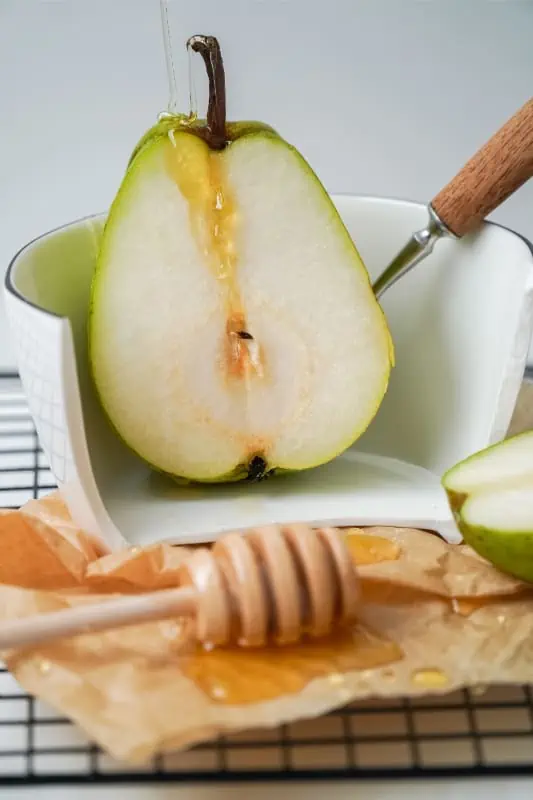While you may be skeptical about alternative treatments, Chinese medicine offers a gentle, holistic approach to improving your respiratory health. You’re seeking natural remedies and Chinese medicine fits the bill, providing a unique approach that has supported wellness for centuries.
With a focus on balancing your body’s energies, you’ll find herbs like ginseng and astragalus, known for their ability to strengthen lung function and boost immunity. Acupuncture, another pillar of this ancient practice, can help regulate your Qi and promote healthy breathing patterns.
By integrating these techniques into your routine, you’re taking a proactive step towards maintaining robust respiratory health within the comforting embrace of nature’s own medicine cabinet.
Key Takeaways
- Traditional Chinese medicine (TCM) supports respiratory health through various approaches including acupuncture, herbal formulas, and lifestyle adjustments.
- Acupuncture plays a role in supporting lung function by modulating inflammation in the bronchial passages and promoting overall well-being and immune system support.
- Dietary recommendations for respiratory health include consuming foods like pears, honey, ginger, and white-colored vegetables, while avoiding dairy, greasy, and excessively spicy foods.
- Integrating Chinese medicine with conventional treatments can create a personalized care plan that nurtures the body’s innate ability to heal and promotes respiratory wellness.
Importance of Respiratory Health

Why should you care about maintaining your respiratory health? Every cell in your body relies on the vital role of your lungs to filter and deliver oxygen. It’s not just about avoiding illness; it’s about ensuring that every breath you take is as nourishing as possible. This is where traditional Chinese medicine for lung health can play a pivotal role in your health regimen.
Chinese medicine, with its centuries-old wisdom, offers a holistic approach to respiratory health. Herbs like ginseng root and astragalus don’t just treat symptoms; they support your body’s natural defenses. Ginseng root, for example, is ideal for dry coughs, while astragalus bolsters your immune system against colds, flu, and even asthma.
Incorporating these natural treatments into your health care can provide a safety net for your respiratory system. Cordyceps mushroom, another gem from Chinese medicine, specifically addresses chronic lung weakness and symptoms such as coughing and wheezing. Schisandra, meanwhile, helps retain lung strength, crucial for those with asthma.

Traditional Chinese Medicine Approaches to Respiratory Health
You’ll find numerous natural remedies in Chinese medicine that can enhance your respiratory health and prevent ailments. Traditional Chinese approaches understand the lungs as regulators of Qi, and when this energy becomes deficient, various symptoms can manifest. To combat lung deficiency TCM for respiratory problems includes a variety of treatment techniques.
When considering traditional Chinese methods, here are some primary interventions:
- Acupuncture: This technique stimulates specific points on the body to balance Qi, improving lung function and immune response.
- Chinese Herbal Medicine Formulas: A tailored blend of Chinese herbs for lungs, such as ginseng root and astragalus, supports lung strength and defends against respiratory infections. These are carefully constructed to target individual symptoms and address the root cause of lung deficiency.
- Lifestyle Adjustments: Recommendations for diet, exercise, and emotional well-being are provided to enhance lung capacity and overall respiratory health.
The Role of Acupuncture in Supporting Lung Function
In addition to herbal remedies, acupuncture serves as a key component in Chinese medicine for enhancing your lung function and respiratory health. Acupuncture for respiratory problems is not just about inserting needles; it’s a holistic approach that considers your entire body’s energy flow, or qi, with a focus on supporting your lungs.
Systematic reviews and meta-analyses suggest that acupuncture and Chinese medicine may have the potential to modulate inflammatory cytokines, relieve symptoms of allergic rhinitis, and support respiratory health.
Chinese medicine utilises various Chinese herbs for supporting and nourishing the lungs. These herbs often have anti-inflammatory effects that support immune function in the recovery from respiratory infections. Acupuncture may also help respiratory conditions, including the common cold and Chronic Obstructive Pulmonary Disease (COPD).
However, the quality of the existing evidence varies, and the effectiveness and safety of acupuncture for respiratory disorders are areas of ongoing research.
| Benefits of Acupuncture | How It Supports Your Lungs |
|---|---|
| Modulates inflammation | Reduces immune-mediated inflammation in the bronchial passages |
| Enhances respiratory health | May help alleviate symptoms of COPD and other respiratory issues |
| Promotes overall well-being | Supports the immune system and balances the body’s energy |
Choosing to integrate Chinese herbal medicine and acupuncture into your health regimen means you’re opting for a safe, alternative way to potentially improve your respiratory health. Remember, while current research is promising, it’s essential to seek treatment from qualified professionals at reputable acupuncture clinics. They’ll ensure your experience with acupuncture and Chinese medicine is both safe and tailored to your needs.
Dietary and Lifestyle Recommendations for Lung Health
To maintain optimal lung health, it’s crucial that you incorporate specific dietary choices and lifestyle habits into your daily routine. Embracing the principles of Chinese Medicine for lungs consider visiting a clinic in Melbourne where you’ll find tailored recommendations that include the use of Chinese herbs to strengthen lungs.
When it comes to your diet, prioritize foods that are known to benefit lung health:
- Pears and honey to moisten the lungs and soothe a dry cough
- Ginger to reduce inflammation and help with respiratory conditions
- White-colored vegetables, such as radishes and daikon, which align with the metal element associated with the lungs in Chinese medicine
- Avoid dairy, greasy, and excessively spicy foods that can produce phlegm and exacerbate respiratory issues

In addition to dietary changes, incorporating specific lifestyle modifications can greatly improve your lung health. Regular practice of Tai Chi or Qigong, for example, can enhance your breathing capacity and Qi flow. Your local practitioner may offer classes or resources on these practices.
Moreover, stress management through meditation or mindfulness can significantly bolster your respiratory system, helping you to breathe easier and feel more vibrant.
Integrating Chinese Medicine for Respiratory Wellness
Incorporating Chinese medicine and acupuncture into your respiratory health regimen can offer a unique balance to conventional treatments, enhancing overall lung function and wellness. Chinese herbs for respiratory infections such as ginseng root and astragalus work to moisten dry coughs and bolster your immune system, respectively. They provide a complementary approach to treating respiratory illness, without the harsh side effects that can sometimes accompany traditional Western medications.
Integrating these ancient remedies offers you more than just physical relief; it’s about nurturing your body’s innate ability to heal. For instance, the cordyceps mushroom addresses chronic lung weakness and the discomfort of coughing, wheezing, and breathlessness. Meanwhile, schisandra retains lung strength and may ease the shortness of breath associated with asthma.
When you combine the precision of modern Western medicine with the holistic wisdom of Chinese practices, you create a personalized care plan that’s tailored to your unique needs. This integration can alleviate pain and discomfort while promoting respiratory wellness.
Conclusion
On your journey to respiratory wellness, remember that Chinese medicine’s treasures—like ginseng and astragalus—are age-old allies, breathing ancient wisdom into modern lives.
Acupuncture’s fine needles can unravel the threads of lung distress, while mindful eating and living fan the flames of health.
Here’s to your lung’s recovery, where every inhale is a new beginning with renewed quality of life.
Melbourne Respiratory Health Support with Chinese Medicine
Dantian Health – Melbourne Acupuncture and Chinese Medicine Clinic
Reclaim your health and restore vitality with responsive, holistic healthcare
References
- The Effect of Acupuncture on Modulating Inflammatory Cytokines in Rodent Animal Models of Respiratory Disease: A Systematic Review and Meta-Analysis
- Acupuncture methods for allergic rhinitis: a systematic review and bayesian meta-analysis of randomized controlled trials
- Acupuncture in the treatment of stable chronic obstructive pulmonary disease: A systematic review of randomised controlled trials
- Efficacy of acupuncture therapy for stable chronic obstructive pulmonary disease: A systematic review and meta-analysis




